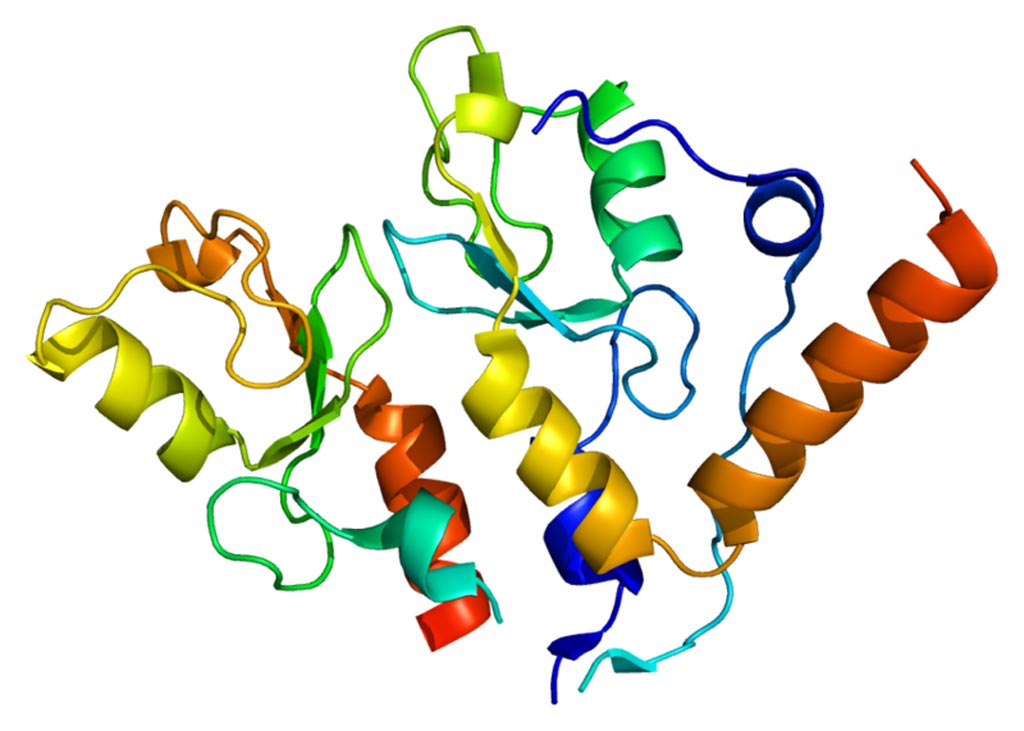Loss of Gene Activity Linked to Development of AD
By LabMedica International staff writers
Posted on 06 Jun 2018
A team of Canadian neurodegenerative disease researchers has identified a gene and its protein product that appear to be linked to the development of late-onset sporadic Alzheimer’s disease (AD), the most prevalent form of dementia.Posted on 06 Jun 2018
Investigators at Université de Montréal (Canada) had discovered several years ago that mutations of the BMI1 (B lymphoma Mo-MLV insertion region 1 homolog) gene in mice triggered accelerated and pathological aging of the brain and eyes.

Image: The structure of the BMI1 (B lymphoma Mo-MLV insertion region 1 homolog) protein (Photo courtesy of Wikimedia Commons).
In a recent study, which was published in the May 29, 2018, issue of the journal Cell Reports, the investigators demonstrated that BMI1 was silenced in AD brains, but not in those with early-onset familial AD, frontotemporal dementia, or Lewy body dementia. BMI1 expression was also reduced in cortical neurons from AD patient-derived induced pluripotent stem cells. BMI1 knockout in human post-mitotic neurons resulted in amyloid beta peptide secretion and deposition, p-Tau accumulation, and neurodegeneration.
Mechanistically, BMI1 was required to repress microtubule associated protein tau (MAPT) transcription and prevent GSK3beta (Glycogen synthase kinase 3 beta) and p53 stabilization, which otherwise resulted in neurodegeneration.
The investigators speculated that restoration of BMI1 activity through genetic or pharmaceutical approaches could represent a therapeutic strategy against AD.
Related Links:
Université de Montréal













